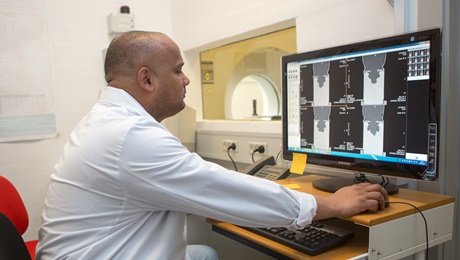The main objective of the project is to compare acid penetration and wormhole propagation in chalk samples (with and without cavity) using 3 different acidizing fluids (15% HCl, 10% Acetic Acid & Mix of 15% HCl & 10% AA) at normal temperature and pressure conditions. Key experiments performed are “Soaking experiment” and “Acid Injection using core flooding setup” followed by “CT Scan”.
Acid Injection into carbonate reservoir is a popular well stimulation method to improve the formation permeability and enhance oil production. Acid injection leads to wormhole creation and propagation which bypass the damage zone.
Wormhole creation and propagation depend on the acid injection rate and dissolution rate of rock in acid. At optimal injection rate, dominant wormholes are formed which correspond to the minimum volume of acid required. Lower dissolution rate leads to deeper acid penetration into the formation.
Conventional acids such as 15% HCl are very popular acidizing fluids due to easy availability and very low price. However due to key disadvantages such as high dissolution rate and corrosion, researchers have developed many alternative options to either reduce the dissolution rate of HCl or replace HCl with another retarded acid.
Organic acid, gelled acids and emulsified acids, additives & chelating agents are either being used or developed to retard the rock dissolution in an acidic medium to achieve deeper acid penetration as well as control the corrosion and iron precipitation.
In this project, we propose to study acid penetration in chalk using soaking experiments followed by CT Scan. To monitor wormhole creation and propagation, optimal injection rate, acid injection experiments will be conducted and pore volume to breakthrough as well as change in permeability will be observed. The effect of cavities in hole phenomena will also be studied.
Main supervisor:
Nicolas von Solms (Associate Professor-CERE)
The project is funded by the Danish Hydrocarbon Research and Technology Centre